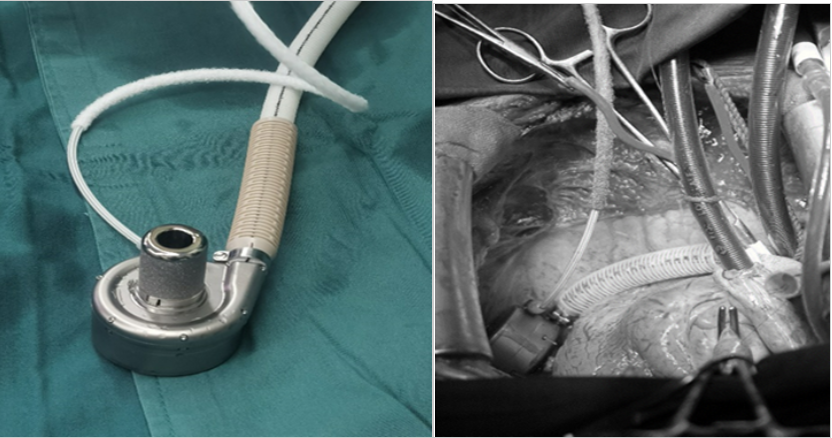On March 20, 2023, the team led by Professor Yan Yang from Department of Cardiovascular Surgery of the First Affiliated Hospital of Xi 'an Jiaotong University (XJTU) successfully performed the first case of beating-heart left ventricular assist device (artificial heart) implantation in northwest China for an elderly patient with severe heart failure.

Six years ago, an elderly male patient, surnamed Chen, received heart stent implantation in a local hospital due to sudden chest tightness and shortness of breath. Two months ago, he developed recurrent symptoms of chest tightness, shortness of breath and fatigue and was subsequently admitted to outpatient clinic of Department of Cardiovascular Surgery of our hospital.

Echocardiography upon admission prompted the signs of ischemic cardiomyopathy, anterior mitral valve prolapse complicated with severe insufficiency, bilateral atrial and left ventricular enlargement complicated with moderate tricuspid regurgitation, thickening of aortic sinus complicated with moderate aortic regurgitation, a ventricular aneurysm, approximately 45×35 mm in size, located in the apical segment of anterior wall, and left ventricular ejection fraction was merely 31%. Professor Yan Yang's team delivered comprehensive discussion and assessment of the patient's conditions. Following multidisciplinary team (MDT) consultation, two surgical regimens were proposed.
At 4:30 pm on March 20, Professor Yan Yang performed the surgery as the chief surgeon with the cooperation of Department of Anesthesiology and Perioperative Medicine, ECG Room, Department of Blood Transfusion and ICU of Department of Cardiovascular Surgery. Intraoperative esophageal ultrasound showed that the left ventricular ejection fraction was only 26%, the ventricular aneurysm was measured 65×35 mm, roughly the size of a fist, accounting for almost half of the whole left ventricle, and the anterior and lateral walls of the left ventricle were scarred, and the myocardial contraction function was completely lost. In the emergency circumstance, Director Yan Yang decided to perform left ventricular assist device implantation for the patient.

At this moment, the patient's heart was extremely fragile, and conventional heart surgery without heart beating will further increase the risk of postoperative cardiac resuscitation. Based on clinical experience of beating-heart bypass surgery, Director Yan Yang was determined to perform beating-heart left ventricular assist device implantation without cardioplegic solution. At 6:00 pm, the patient's heart began to beat vigorously accompanied with the working of artificial heart blood pump. Thanks to attentive treatment and nursing care of medical staff from ICU of Department of Cardiovascular Surgery, the patient was weaned from mechanical ventilator at postoperative 2 d. He is currently receiving further rehabilitation treatment.

Postoperatively, Director Yan Yang highlighted that "it is a highly-demanding procedure for anesthesiologists and cardiopulmonary bypass surgeons to complete beating-heart artificial heart implantation. However, this technology can prevent the incidence of myocardial ischemia, hypoxia and reperfusion injury, and protect the myocardium to the maximum extent. Besides, it can shorten the duration of heating and cooling process, initiate circulation free from heart re-beating, significantly shorten the operation time and maximize clinical benefits for patients”.